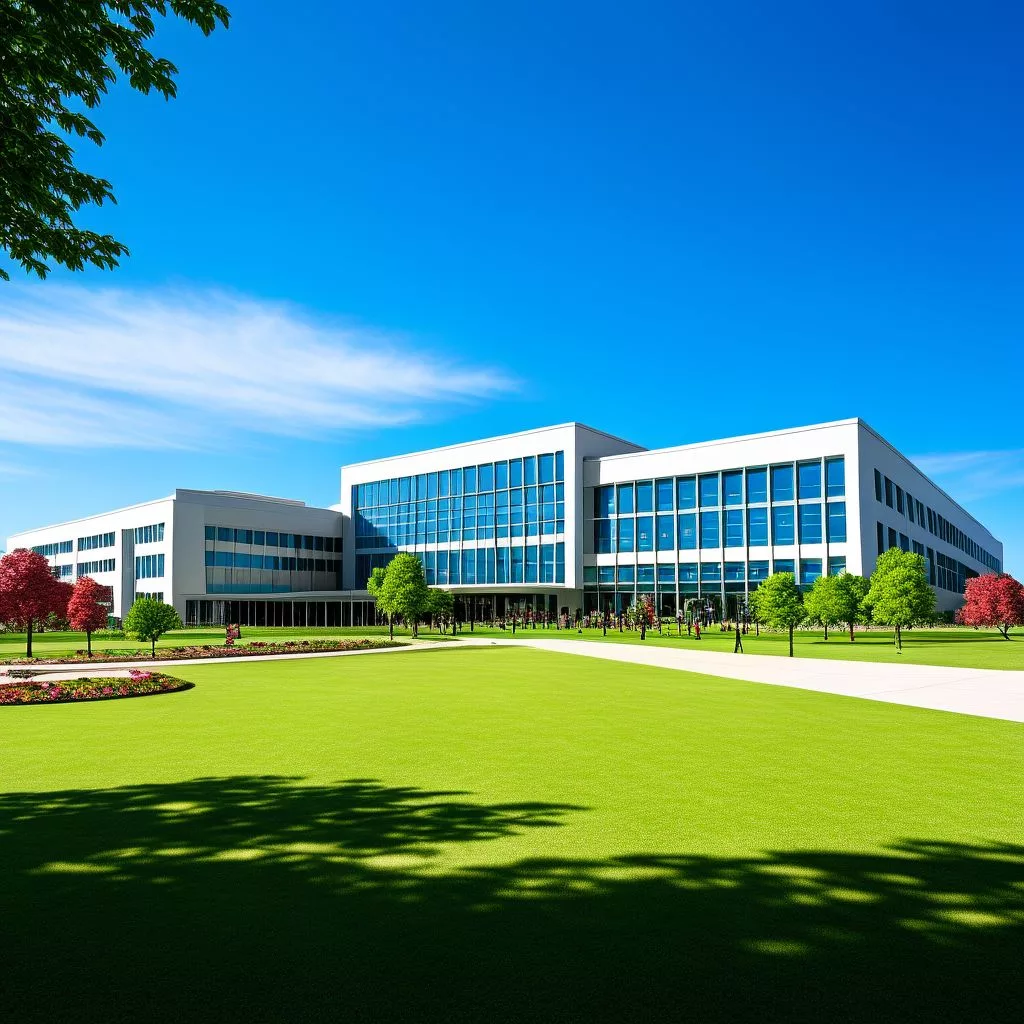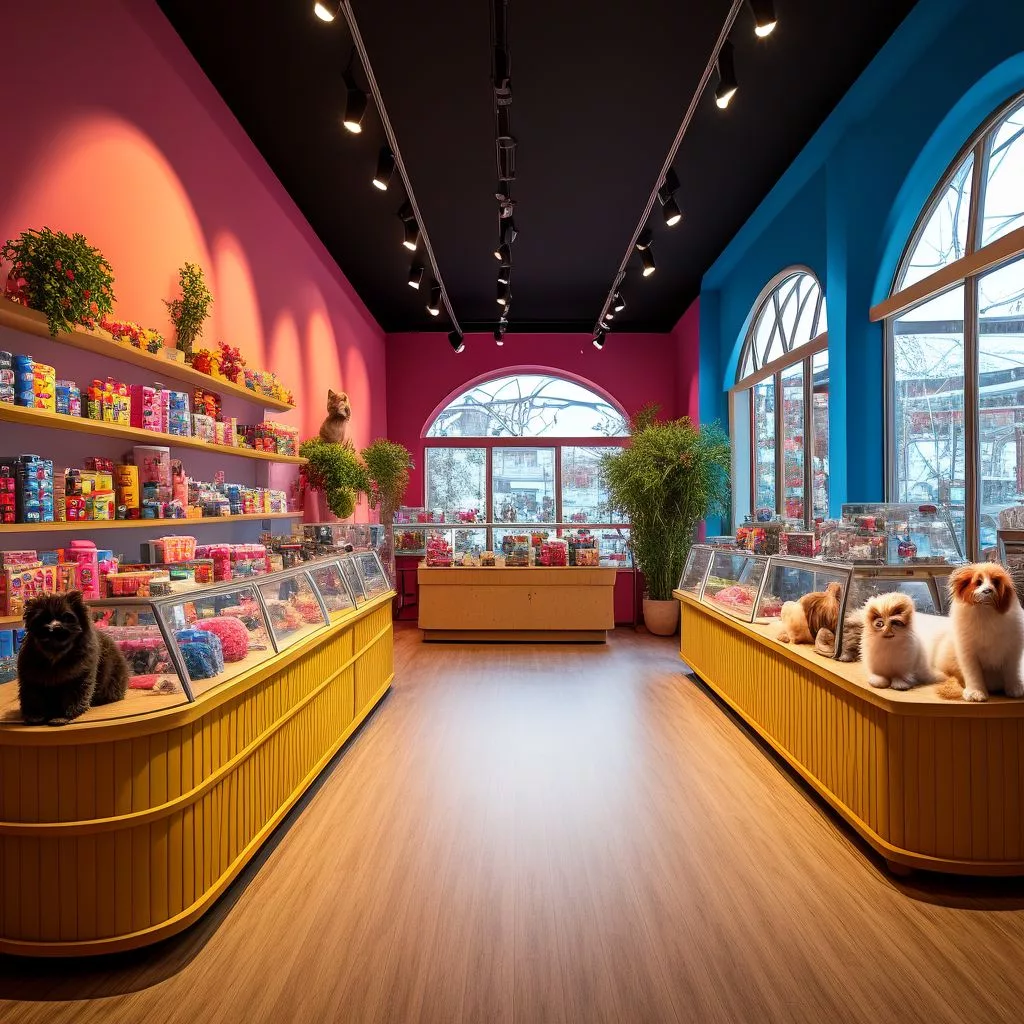STADIO is set to open a new campus in Durbanville, Cape Town, in 2025, marking an exciting step forward for higher education in South Africa. With plans to enroll 56,000 students by 2026, this campus aims to create a vibrant and supportive learning community. It will feature modern facilities like advanced labs and lecture halls, all designed to help students succeed. This development not only boosts education but also promises job opportunities and economic growth for the local area, making it a beacon of hope and progress for many.
What is the significance of STADIO’s new campus in Durbanville?
STADIO’s new campus in Durbanville, set to open in 2025, represents a major advancement in South African higher education. It aims to enhance educational offerings, increase student enrollment to 56,000 by 2026, and stimulate local economic growth, while fostering a dynamic academic community.
In a significant move for South Africa’s higher education sector, STADIO, a leading private education group, is set to launch a new university campus in Durbanville, Cape Town, by 2025. This new development signifies much more than just a physical expansion; it marks an exciting chapter for both the institution and the students it serves.
STADIO’s plans come on the heels of a period of impressive financial performance. For the fiscal year ending December 31, 2024, the group reported a 17% increase in profit and a notable 28% rise in headline earnings per share. During the release of its annual results, STADIO highlighted year-on-year growth in student enrollments, with the total number of students reaching 50,039 by the second semester. This 8% increase emphasizes the institution’s growing appeal and its effective adaptation to the evolving demands of the education sector.
Financial Strength and Commitment
The new Durbanville campus represents a substantial investment for STADIO, with R32 million allocated for its construction. This funding is sourced equally from long-term debt and cash reserves, reflecting the group’s dedication to enhancing its educational offerings and extending its influence. Upon completion, the Durbanville campus will join STADIO’s existing network of campuses located in Bellville, Musgrave, Randburg, Hatfield, and Waterfall.
STADIO’s growth trajectory is evident in its financial results. Revenue increased by 14% to R1.6 billion, fueled by a surge of students eager to resume in-person learning post-pandemic. The profit after tax also saw a significant rise, reaching R276 million. Furthermore, STADIO’s strategic acquisition of a 15.4% stake in Milpark Education positively impacted its profits attributable to the parent company. This acquisition not only strengthened STADIO’s financial position but also expanded its academic footprint.
The board demonstrated its commitment to sharing profits with shareholders by declaring a final dividend of 15.1 cents per share, a remarkable 51% increase year-on-year. This decision not only rewards shareholders but also highlights the institution’s robust financial health and optimistic outlook for the future.
Ambitious Goals and Community Impact
STADIO has set ambitious targets for the coming years, with a forecast of enrolling 56,000 students by 2026 and aiming to reach 80,000 by 2030. These goals reflect the institution’s vision of becoming a leading force in South Africa’s higher education sector. The expansion of physical campuses, coupled with increasing student numbers, positions STADIO as a formidable entity in the educational landscape.
The Durbanville campus promises to be more than just a collection of buildings; it is envisioned as a dynamic academic community designed to foster student success. The campus will feature state-of-the-art facilities, including advanced laboratories and modern lecture halls, all aimed at creating an optimal learning environment. STADIO’s commitment to providing top-quality education is evident in every aspect of the new campus’s design.
This development holds significant promise not only for STADIO but also for the broader community. The new campus will generate employment opportunities and stimulate local economic growth. Additionally, it will attract students from diverse backgrounds, enriching the cultural and intellectual fabric of the area.
The Broader Context and Future Prospects
In a wider historical context, STADIO’s expansion reflects global trends in higher education, where private institutions are increasingly playing a pivotal role. Similar to how the Renaissance sparked a revival in learning and creativity, modern educational institutions like STADIO are driving a new era of academic excellence and innovation. The commitment to expanding access to quality education aligns with the ideals of the Enlightenment, where knowledge and reason were seen as pathways to progress.
In this sense, the new Durbanville campus can be viewed as a beacon of hope and opportunity. It symbolizes the transformative power of education to uplift lives and communities. STADIO’s focus on growth and development resonates with the broader societal aspiration for advancement and betterment.
Furthermore, STADIO’s strategic investments and financial management highlight a significant trend in the business of education. As education increasingly intersects with business principles, institutions must balance financial viability with academic integrity. STADIO’s success in this arena offers valuable insights for other institutions aiming to thrive in a competitive environment.
In conclusion, the new Durbanville campus epitomizes STADIO’s vision of growth, excellence, and community impact. Through strategic investments, strong financial health, and a steadfast commitment to quality education, STADIO is poised to lead the charge in South Africa’s higher education sector. As the campus opens its doors in 2025, it will not only mark a new chapter for STADIO but also for the thousands of students who will embark on their educational journeys within its halls. This development promises to shape the future of South African higher education, making a lasting impact on students, communities, and the nation as a whole.
“`markdown
What is the significance of STADIO’s new campus in Durbanville?
STADIO’s new campus in Durbanville, set to open in 2025, represents a major advancement in South African higher education. It aims to enhance educational offerings, increase student enrollment to 56,000 by 2026, and stimulate local economic growth, while fostering a dynamic academic community.
How much has STADIO invested in the new Durbanville campus?
STADIO has allocated R32 million for the construction of the Durbanville campus. This funding is sourced equally from long-term debt and cash reserves, showcasing the institution’s commitment to enhancing its educational offerings.
What facilities will be available at the Durbanville campus?
The Durbanville campus will feature state-of-the-art facilities, including advanced laboratories and modern lecture halls. These facilities are designed to create an optimal learning environment and support students in their academic endeavors.
What are STADIO’s enrollment goals for the future?
STADIO aims to enroll 56,000 students by 2026, with a longer-term goal of reaching 80,000 students by 2030. These ambitious targets reflect STADIO’s vision of becoming a leading force in South Africa’s higher education sector.
How will the new campus impact the local community?
The new Durbanville campus is expected to generate employment opportunities and stimulate local economic growth. It will attract students from diverse backgrounds, enriching the cultural and intellectual fabric of the area and providing a boost to the local economy.
What recent financial performance has STADIO reported?
For the fiscal year ending December 31, 2024, STADIO reported a 17% increase in profit and a 28% rise in headline earnings per share. The group also reported a 14% increase in revenue, totaling R1.6 billion, driven by a surge in student enrollments eager to return to in-person learning post-pandemic.
“`












